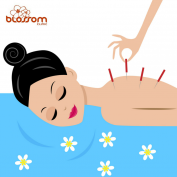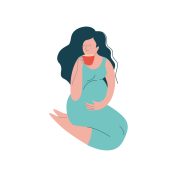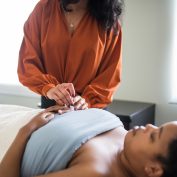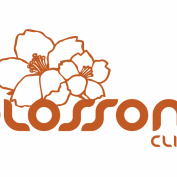Contributed by Dr. Elise Schroeder and Liz Richards, L.Ac. of Blossom Clinic
What is PCOS?
Poly Cystic Ovarian Syndrome (PCOS) is a hormonal imbalance condition found in women of childbearing age. PCOS is characterized by some or all of the following symptoms:
- Irregular periods
- Fertility problems
- Difficulty losing weight with a distribution of weight around the middle
- Unwanted hair growth on the chin, jawline, chest or upper legs
- Acne
- Loss of scalp hair
- Ovarian cysts (This is where the name poly cystic ovarian syndrome originated. However, since not all women have this sign, it is a bit of a misnomer)
It is typically diagnosed by the presence of any combination of these symptoms when other diagnoses are ruled out.
Twenty years ago PCOS was uncommon. Most doctors knew it as Stein-Leventhal syndrome and it was considered a very rare condition. Not so today. According to the Office on Women’s Health, US Department of Health and Human Services: “Between 1 in 10 and 1 in 20 women of childbearing age has PCOS. As many as 5 million women in the United States may be affected. It can occur in girls as young as 11 years old.”
What causes PCOS?
- Genetics
- Insulin Resistance
- Childhood Obesity
There seems to be a genetic predisposition to PCOS. In other words, if another woman in your family has it, you are more likely to have it as well.
PCOS may also be related to the rise in obesity in the US. For example, children who are overweight have an increased risk of having this syndrome when they are older. Obesity causes a hormone imbalance during puberty that sets the metabolism and puts that individual at a higher risk for obesity and problems with normal ovulation for the rest of her life.
Conventional Treatments for PCOS:
- Oral birth control to help control symptoms and to regulate periods
- Drugs to reduce insulin resistance- like metformin
- Drugs to induce ovulation for fertility- like clomid
- Weight loss
These medications can help many women reduce symptoms and achieve pregnancy, but there are a lot of other women who do not find success with these therapies alone.
Metformin is used to address insulin resistance. Improving insulin resistance has been shown to help regulate the menstrual cycle and induce ovulation. Unfortunately there are some undesirable side effects with metformin and many women cannot tolerate this treatment. However, it is possible to treat insulin resistance with herbs, nutrients and most importantly diet and exercise.
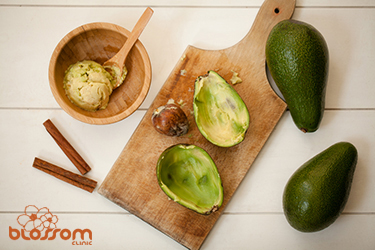 Naturopathic Treatments for PCOS:
Naturopathic Treatments for PCOS:
- Individualized PCOS nutrition plan
- Herbs to encourage regular ovulation
- Nutrients to improve insulin function and hormone balance
Weight loss and proper nutrition is a key part of PCOS treatment, however, women with PCOS have disrupted metabolisms making weight loss difficult. Simply cutting calories never works for these individuals, which can be very frustrating.
Exercise is a must! 30 minutes a day for increased metabolism. This cannot be emphasized enough. Study after study shows that exercise is the most important piece for patients with PCOS and insulin resistance.
Myo-Inositol: One of 9 forms of inositol. Regulates insulin sensitivity and helps improve ovulation. We carry Vital Nutrients Inositol Powder.
NAC (N-Acetyl-Cysteine): Improves insulin sensitivity and lowers testosterone. Our NAC is also from Vital Nutrients.
Vitamin B-12: Taking metformin over a long period of time can cause vitamin B12 deficiency. We offer B –Vitamin injections.
Licorice Root: One of Dr. Elise’s favorite herbs in the treatment of PCOS. Licorice helps balance hormones by reducing androgen levels, improving stress hormone levels and regulating insulin.
Other herbs: As always, it is best to see a licensed naturopathic doctor or acupuncturist for individualized formulas to encourage ovulation and regulate the menstrual cycle. It is very rare for a practitioner to use an herb or supplement alone and having customized formulas can help have the best outcome.
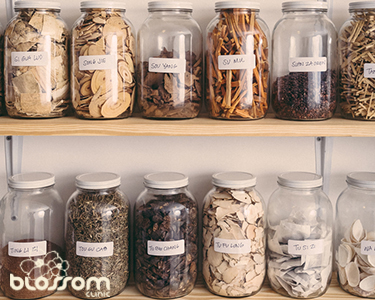 How/Why do complimentary and alternative medicine approaches work with PCOS?
How/Why do complimentary and alternative medicine approaches work with PCOS?
Poly Cystic Ovarian Syndrome (PCOS) can be successfully treated with Complementary and Alternative Medicine because of the following characteristics:
- Hyperinsulinemia (you have too much circulating insulin for the glucose or carbs you have eaten): Insulin is a hormone that helps with blood sugar regulation. In individuals with insulin resistance, the body cannot utilize insulin correctly and excess fat is stored causing obesity.
- Hyper LH secretion (abnormal ratio of LH to FSH)
- Increased androgen production: Insulin resistance can also cause problems with ovulation and is associated with excess androgen production. Androgens are the hormones that produce hair growth, acne and loss of scalp hair in women.
- Anovulation: Ovulation is not occurring
In summary:
Naturopathic treatments provide an individualized plan, including nutrition, focused on the PCOS patient’s metabolism. This can reduce insulin resistance and repair the hormonal disruption caused by it. Other naturopathic treatments are: herbs to help encourage ovulation and normalize the menstrual cycle, vitamins and minerals to optimize hormone function, and drug therapies when needed. This type of treatment protocol can actually reverse the hormone imbalance and help women achieve pregnancy naturally. We have seen this happen many times!

